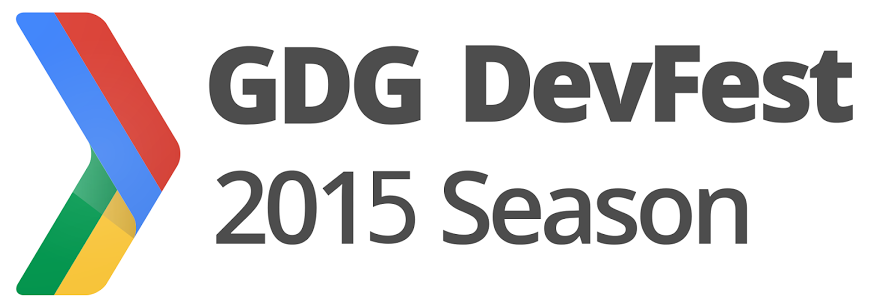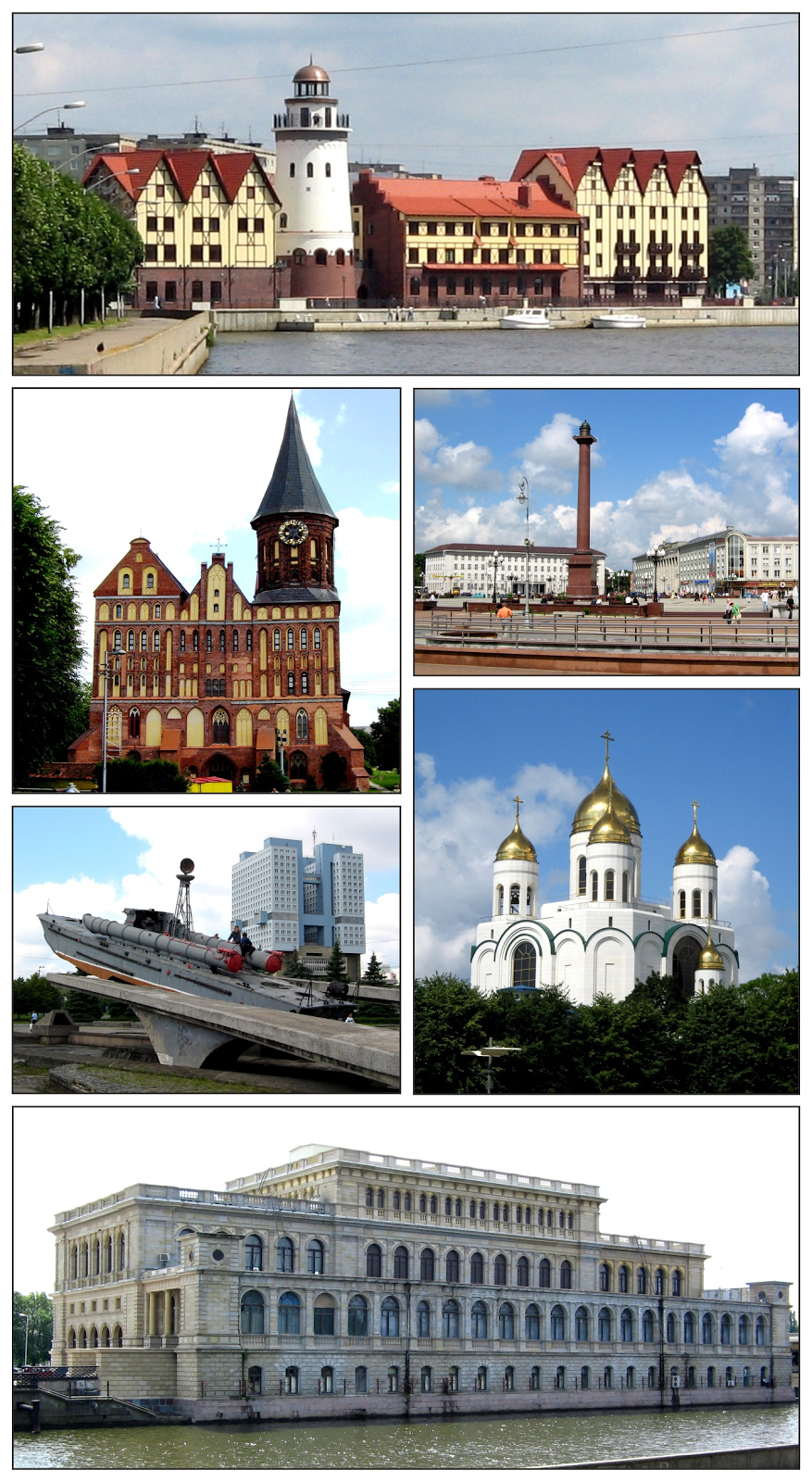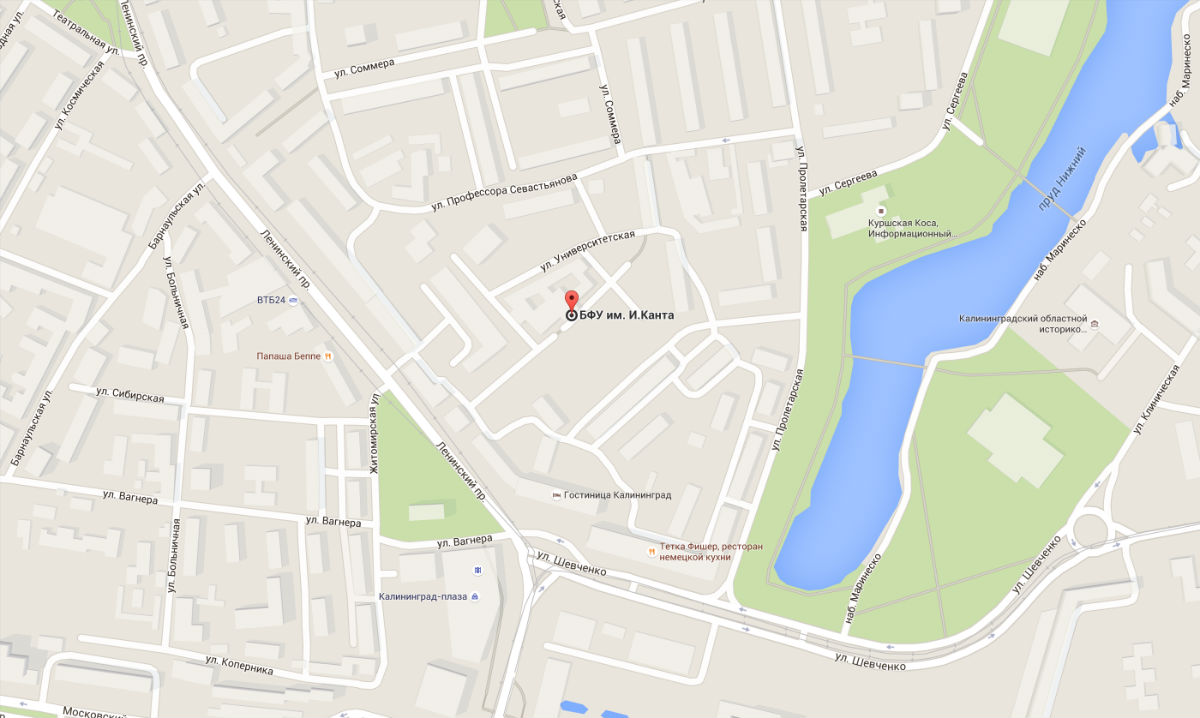GDG Devfest Krasnoyarsk and Kaliningrad this Saturday
Hi, Habr! The wave of DevFest continues to overrun more and more new cities in Russia. This weekend, the beacons of knowledge about Googletechnologies will be lit in two more: Kaliningrad and Krasnoyarsk. We invite all fans of IT and Google technologies to meet and discuss relevant issues. What exactly will be discussed at conferences, where they are held and by which time it is coming - under the cut.

DevFests is a series of large-scale IT events around the world that focus on Google’s developer technologies, as well as other open mobile and web technologies. At the moment, the geography of DevFest Season includes more than 50 cities around the world.
')
In Russia, DevFest has been running since 2012. For the first time in Kaliningrad and Krasnoyarsk. If you are a developer, designer, Google-enthusiast, are interested in the IT world, or just miss communicating with good people - come on December 12 to the conference!
You can look at the “typical DevFest” (in fact, each of the cities conducting DevFest has its own traditions and features) in one of our photo reports, for example, in Voronezh or Nizhny Novgorod .

Kaliningrad is one of the most unusual cities in Russia. It became Russian relatively recently, the architecture and culture of the city is very different from everything that can be seen in other cities. In this city, old European and Soviet buildings, two different cultures and two different ideas come into contact. We are pleased that Kaliningrad has joined the club of DevFest host cities, and we hope that in 2016 we will be able to meet here again.

Photo by Georgy Dolgopsky, CC BY-SA 3.0
We are going in Kaliningrad on Universitetskaya Street, Building 2 (assembly hall of the Baltic Federal University).

10: 00–10: 45 - Registration, welcome coffee.
10: 45–11: 00 - Opening of the conference.
11: 00–11: 40 - Experience in designing UI and UX mobile and web applications with live examples. Kirill Rostovtsev (System Technologies, Kaliningrad)
11: 45–12: 25 - Google Play feature. Sergey Sheleg (Ultimate Guitar, Kaliningrad) 12: 30–13: 10 - Isomorphic code for Android, common code on the server and in the application. Kirill Danilov (Witkit, Moscow)
13: 15–14: 00 - Lunch. Free communication.
14: 05–14: 45 - Using the RxJava, Dagge, Retrofit libraries to build the architecture of an Android application. Dmitry Suzdalev (CODE, Kaliningrad)
14: 50–15: 30 - Mobile Vision API in Google Play Services. Grigory Dzhanelidze (e-Legion, St. Petersburg)
15: 35–16: 05 - coffee break.
16: 10–16: 50 - DeviceHive: IoT on Android. Nikolay Khabarov (DataArt, Voronezh)
16: 55–17: 35 - Google Beacons. Zviad Kardava (RusBITech, Moscow)
17: 40–18: 10 - Closing of the conference.
Participation is free, but pre-registration is required.

Krasnoyarsk is the easternmost Russian million-plus city, one of the most important cities in Siberia, a major industrial, economic and cultural center of the region. And since December 12, Krasnoyarsk is also a city that takes over the baton of Russian DevFests with its own army of fans of Google technologies. :)

Krasnoyarsk DevFest is somewhat different in format from the "classic", held in other cities. Firstly, it starts at an unusual time: guests are received from 11 am, the very beginning of the event - at 12:00. Secondly, the meeting takes place on the basis of the community Dev2Dev . Krasnoyarsk meeting of all those who are not indifferent to our technologies will be held at the address: ul. Air terminal, 10. MTBTs "Pilot".

As usual, all that is required of you is to pre- register through the site . The following reports await you at the meeting:
Probably everyone has already heard something about docker. Someone is already using it, someone else doubts and thinks whether he will bring more problems than good. After this report, your doubts will be dispelled. You will find out the current status of the docker infrastructure at the moment. Learn which utilities and related tools make it easier to work with. How to put all this into practice to improve the process of developing and running applications in production.
Material Design is a powerful user interface concept introduced by Google last year. In addition to the basic principles, Google has also developed manuals that include descriptions and recommendations on the use of interface components. It seems to read, do it - but no, not everything is so simple. In this report, Anton will reflect on some of the problems and tell you how to solve them.
Elliptics is a key-value distributed data warehouse without a single point of failure. The guys from 24au.ru use it to store user pictures. Anatoly will tell about this beast in more detail, how 24au.ru came to this and, of course, what rake it took.
Code reuse is the holy grail of modern software development. Just imagine - you wrote a library, a class, a component, some abstract brick and you use it everywhere, you build walls of bricks, you build castles, you save hundreds of man-hours. But web is not so simple, we have a zoo of technologies in the form of CSS, HTML and JavaScript, which were not originally created to build solid blocks that can be folded together and not destroy your application. Here we have a whole heap of problems in the form of the lack of scopes, the selection of the selectors, the cascading, the global scope, etc. Someone solves these problems with the help of SASS, css modules, making frankensteins on jQuery: mixing code, markup and styles in one boiler. But there is a solution! Web components. In the report we will analyze the basic technologies (Shadow DOM, templates, custom elements) on which the web components are built, we will try to create our component on the current technology stack, as well as using the Polymer library from Google. And on the hot we will discuss what ideas of web components formed the basis of Angular 2 and how to continue to live with it.
Programmers have been scribbling about isomorphic applications for a long time, (this is the case when you write backend and frontend in the same language), but only two languages really approached this ideal - JavaScript and Clojure. And Clojure is an essentially functional language, as well as another LISP. In the report, we will try to open the curtain in the mysterious world of functional programming, understand the nature of LISP and learn how to create practical and topical applications using Clojure.
That's all. We are waiting for you in Krasnoyarsk and Kaliningrad this Saturday. Have a productive week end and an interesting weekend!

About DevFest and past events
DevFests is a series of large-scale IT events around the world that focus on Google’s developer technologies, as well as other open mobile and web technologies. At the moment, the geography of DevFest Season includes more than 50 cities around the world.
')
In Russia, DevFest has been running since 2012. For the first time in Kaliningrad and Krasnoyarsk. If you are a developer, designer, Google-enthusiast, are interested in the IT world, or just miss communicating with good people - come on December 12 to the conference!
You can look at the “typical DevFest” (in fact, each of the cities conducting DevFest has its own traditions and features) in one of our photo reports, for example, in Voronezh or Nizhny Novgorod .
GDG DevFest Kaliningrad

Kaliningrad is one of the most unusual cities in Russia. It became Russian relatively recently, the architecture and culture of the city is very different from everything that can be seen in other cities. In this city, old European and Soviet buildings, two different cultures and two different ideas come into contact. We are pleased that Kaliningrad has joined the club of DevFest host cities, and we hope that in 2016 we will be able to meet here again.

Photo by Georgy Dolgopsky, CC BY-SA 3.0
We are going in Kaliningrad on Universitetskaya Street, Building 2 (assembly hall of the Baltic Federal University).

Conference program in Kaliningrad:
10: 00–10: 45 - Registration, welcome coffee.
10: 45–11: 00 - Opening of the conference.
11: 00–11: 40 - Experience in designing UI and UX mobile and web applications with live examples. Kirill Rostovtsev (System Technologies, Kaliningrad)
11: 45–12: 25 - Google Play feature. Sergey Sheleg (Ultimate Guitar, Kaliningrad) 12: 30–13: 10 - Isomorphic code for Android, common code on the server and in the application. Kirill Danilov (Witkit, Moscow)
13: 15–14: 00 - Lunch. Free communication.
14: 05–14: 45 - Using the RxJava, Dagge, Retrofit libraries to build the architecture of an Android application. Dmitry Suzdalev (CODE, Kaliningrad)
14: 50–15: 30 - Mobile Vision API in Google Play Services. Grigory Dzhanelidze (e-Legion, St. Petersburg)
15: 35–16: 05 - coffee break.
16: 10–16: 50 - DeviceHive: IoT on Android. Nikolay Khabarov (DataArt, Voronezh)
16: 55–17: 35 - Google Beacons. Zviad Kardava (RusBITech, Moscow)
17: 40–18: 10 - Closing of the conference.
Participation is free, but pre-registration is required.
GDG DevFest Krasnoyarsk

Krasnoyarsk is the easternmost Russian million-plus city, one of the most important cities in Siberia, a major industrial, economic and cultural center of the region. And since December 12, Krasnoyarsk is also a city that takes over the baton of Russian DevFests with its own army of fans of Google technologies. :)

Krasnoyarsk DevFest is somewhat different in format from the "classic", held in other cities. Firstly, it starts at an unusual time: guests are received from 11 am, the very beginning of the event - at 12:00. Secondly, the meeting takes place on the basis of the community Dev2Dev . Krasnoyarsk meeting of all those who are not indifferent to our technologies will be held at the address: ul. Air terminal, 10. MTBTs "Pilot".

As usual, all that is required of you is to pre- register through the site . The following reports await you at the meeting:
Ilya Beda. Docker for everyone, everyone, everyone
Probably everyone has already heard something about docker. Someone is already using it, someone else doubts and thinks whether he will bring more problems than good. After this report, your doubts will be dispelled. You will find out the current status of the docker infrastructure at the moment. Learn which utilities and related tools make it easier to work with. How to put all this into practice to improve the process of developing and running applications in production.
Anton Tarasov. Problems of consistency "Material Design"
Material Design is a powerful user interface concept introduced by Google last year. In addition to the basic principles, Google has also developed manuals that include descriptions and recommendations on the use of interface components. It seems to read, do it - but no, not everything is so simple. In this report, Anton will reflect on some of the problems and tell you how to solve them.
Anatoly Basov Elliptics at 24au.ru
Elliptics is a key-value distributed data warehouse without a single point of failure. The guys from 24au.ru use it to store user pictures. Anatoly will tell about this beast in more detail, how 24au.ru came to this and, of course, what rake it took.
Alexey Syzko. Web components. The future is here
Code reuse is the holy grail of modern software development. Just imagine - you wrote a library, a class, a component, some abstract brick and you use it everywhere, you build walls of bricks, you build castles, you save hundreds of man-hours. But web is not so simple, we have a zoo of technologies in the form of CSS, HTML and JavaScript, which were not originally created to build solid blocks that can be folded together and not destroy your application. Here we have a whole heap of problems in the form of the lack of scopes, the selection of the selectors, the cascading, the global scope, etc. Someone solves these problems with the help of SASS, css modules, making frankensteins on jQuery: mixing code, markup and styles in one boiler. But there is a solution! Web components. In the report we will analyze the basic technologies (Shadow DOM, templates, custom elements) on which the web components are built, we will try to create our component on the current technology stack, as well as using the Polymer library from Google. And on the hot we will discuss what ideas of web components formed the basis of Angular 2 and how to continue to live with it.
Nikolai Ryzhikov. Isomorphic clojure applications
Programmers have been scribbling about isomorphic applications for a long time, (this is the case when you write backend and frontend in the same language), but only two languages really approached this ideal - JavaScript and Clojure. And Clojure is an essentially functional language, as well as another LISP. In the report, we will try to open the curtain in the mysterious world of functional programming, understand the nature of LISP and learn how to create practical and topical applications using Clojure.
That's all. We are waiting for you in Krasnoyarsk and Kaliningrad this Saturday. Have a productive week end and an interesting weekend!
Source: https://habr.com/ru/post/272781/
All Articles